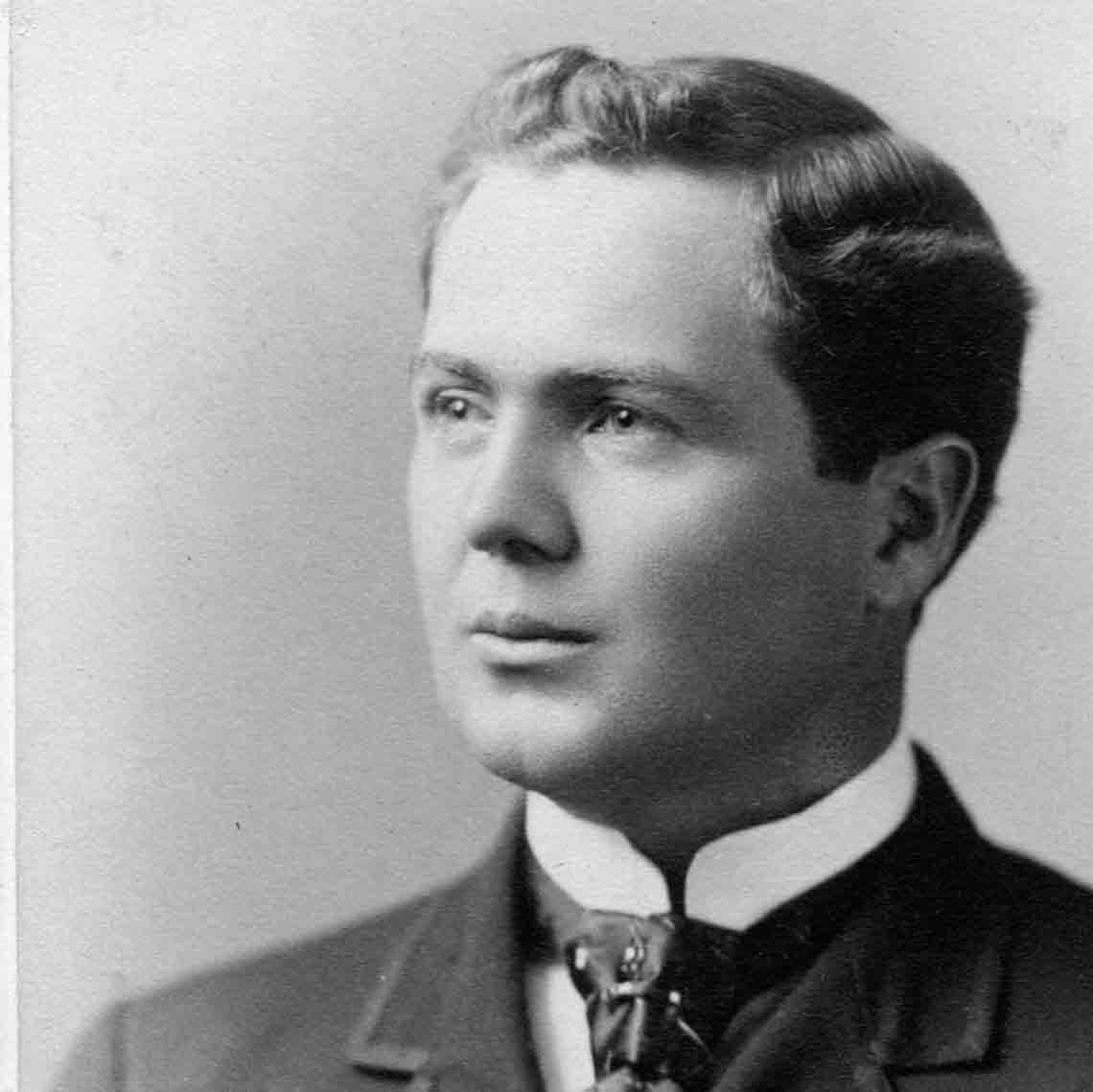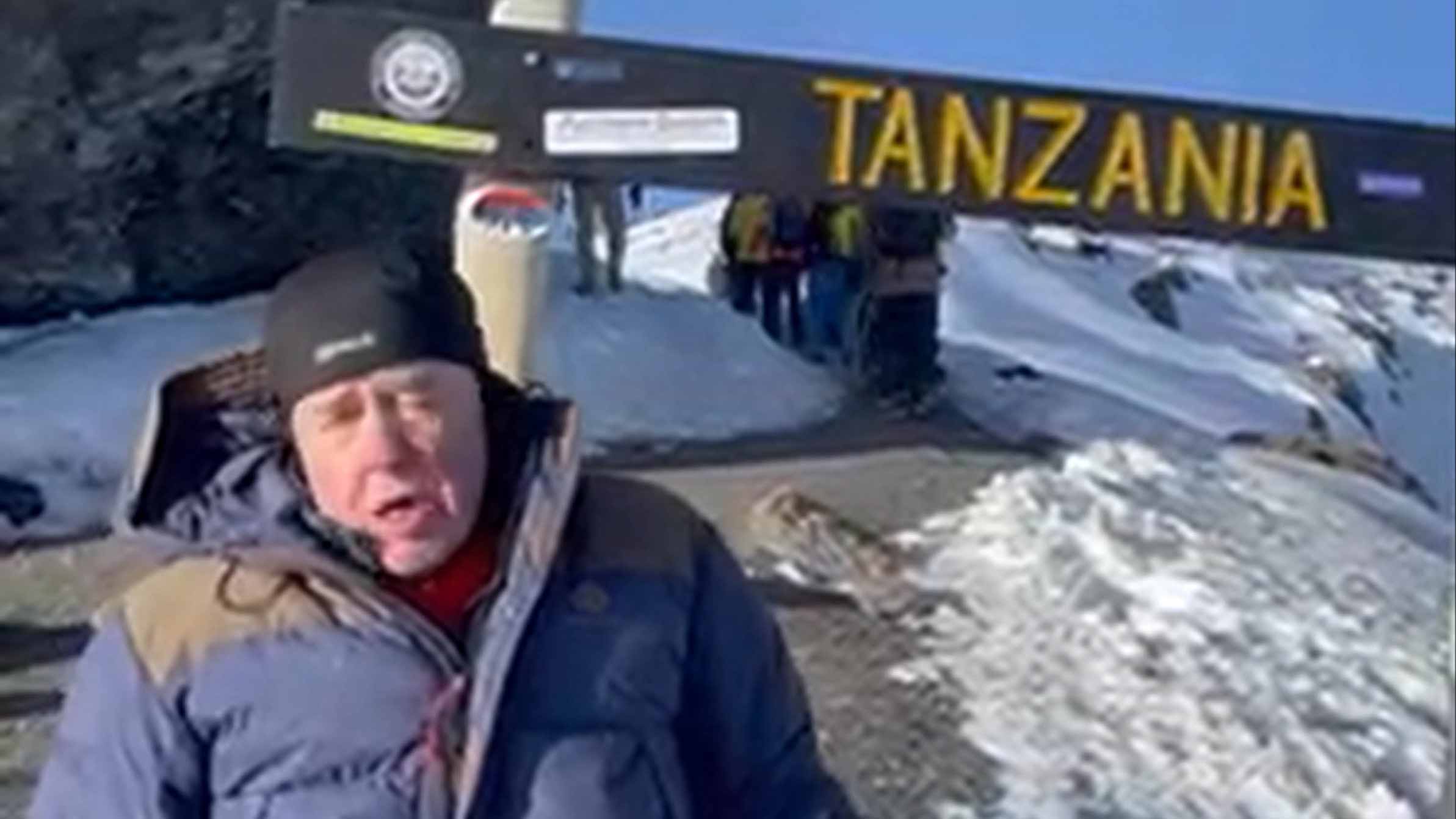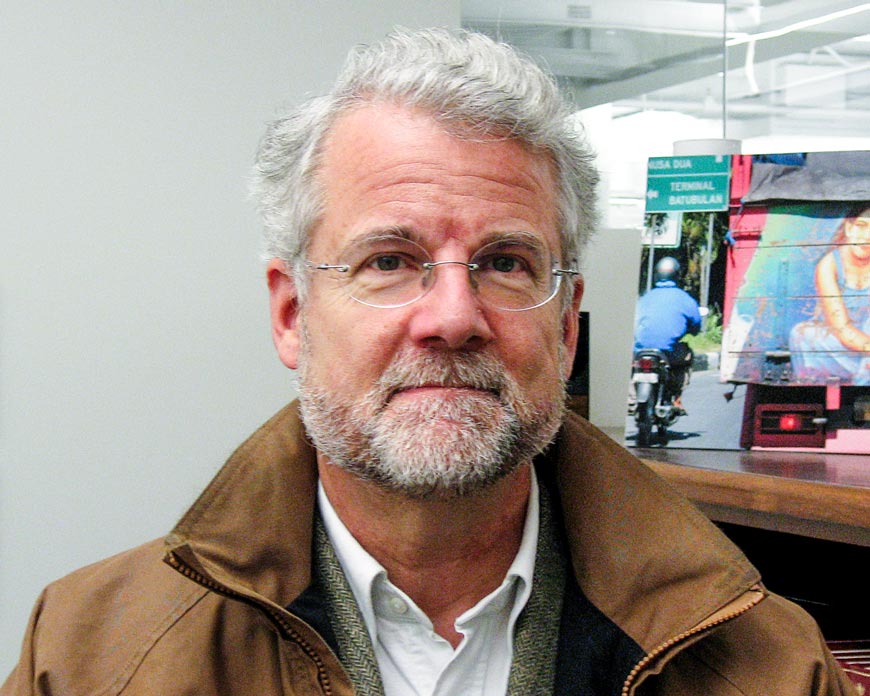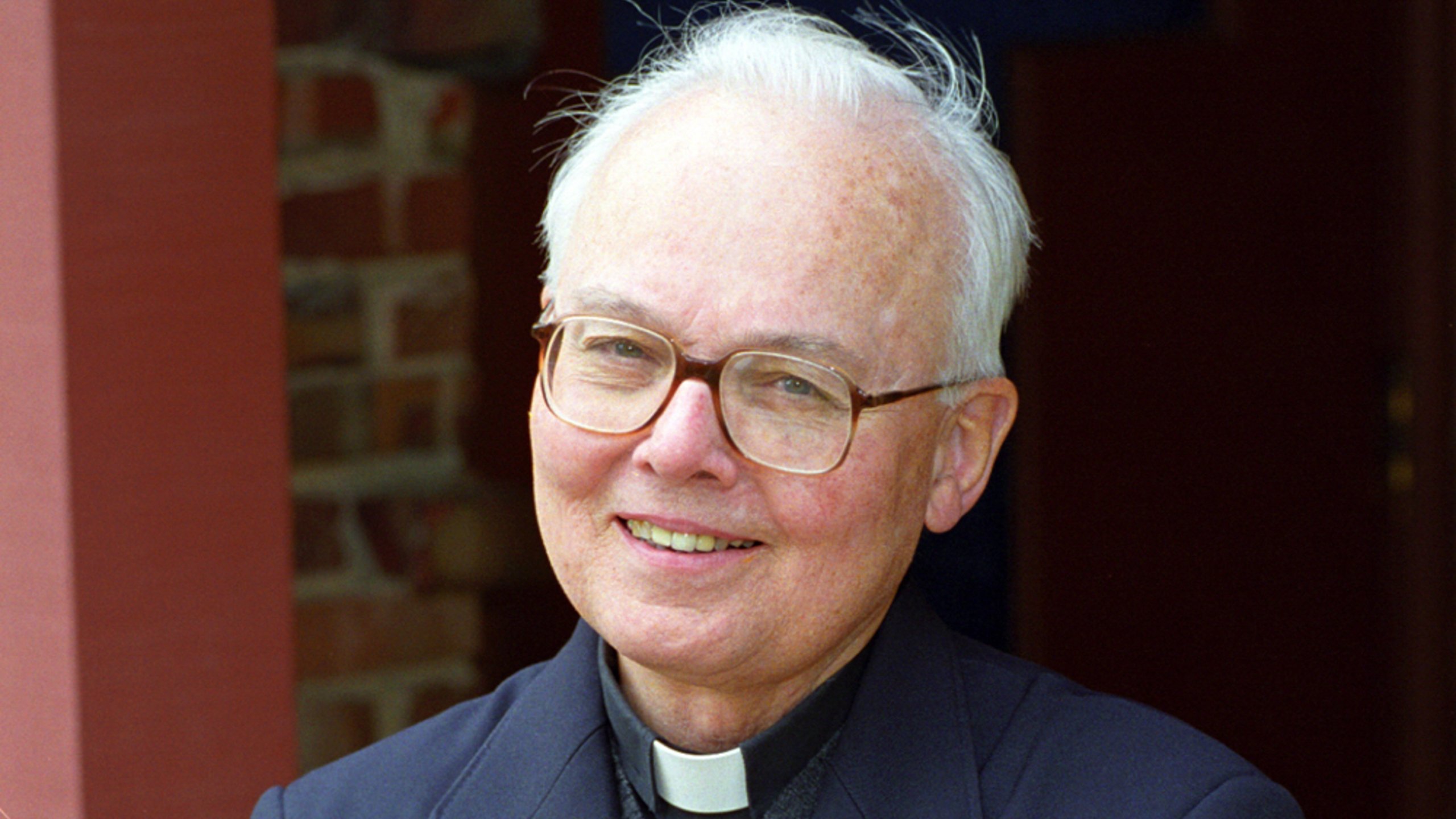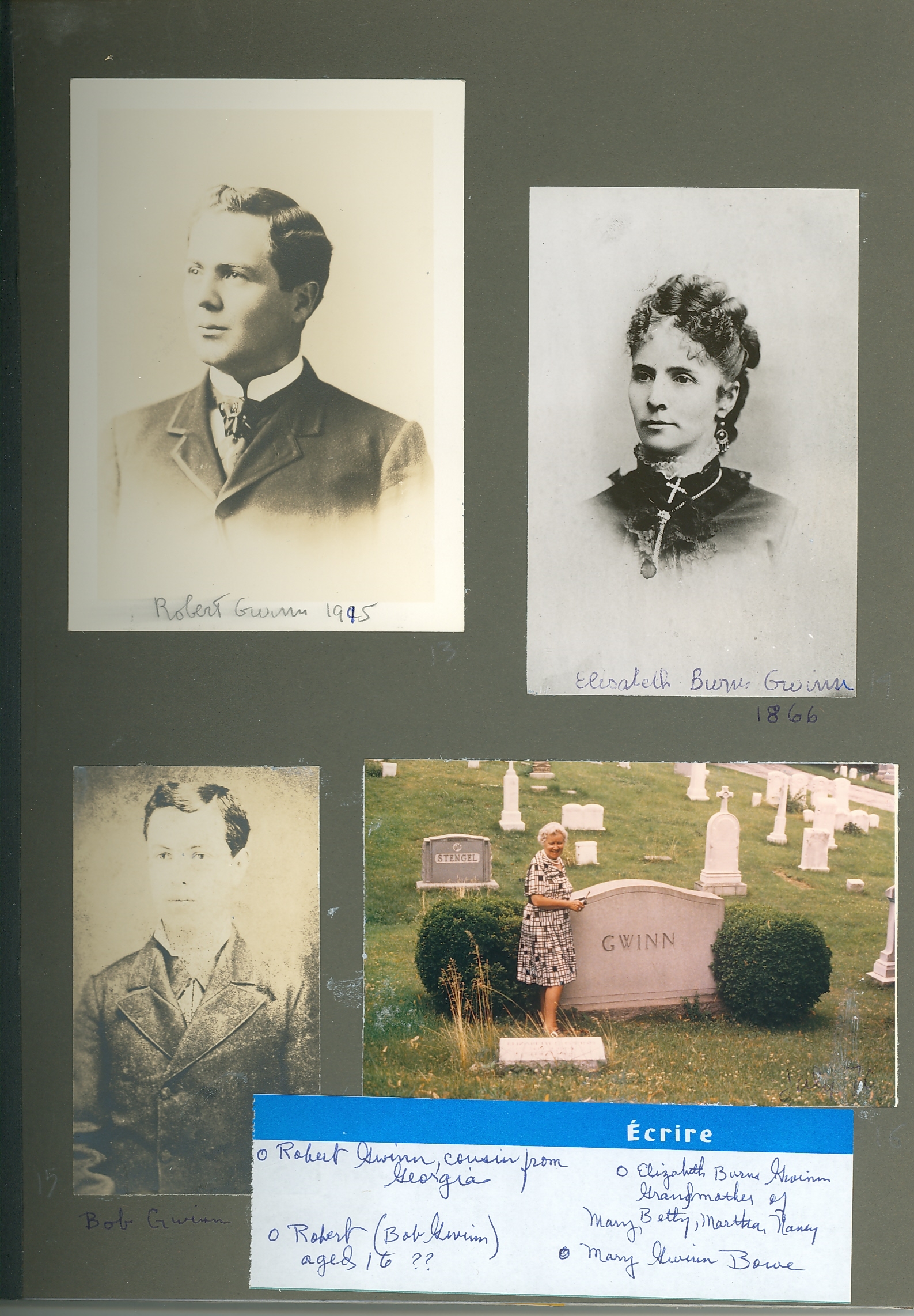
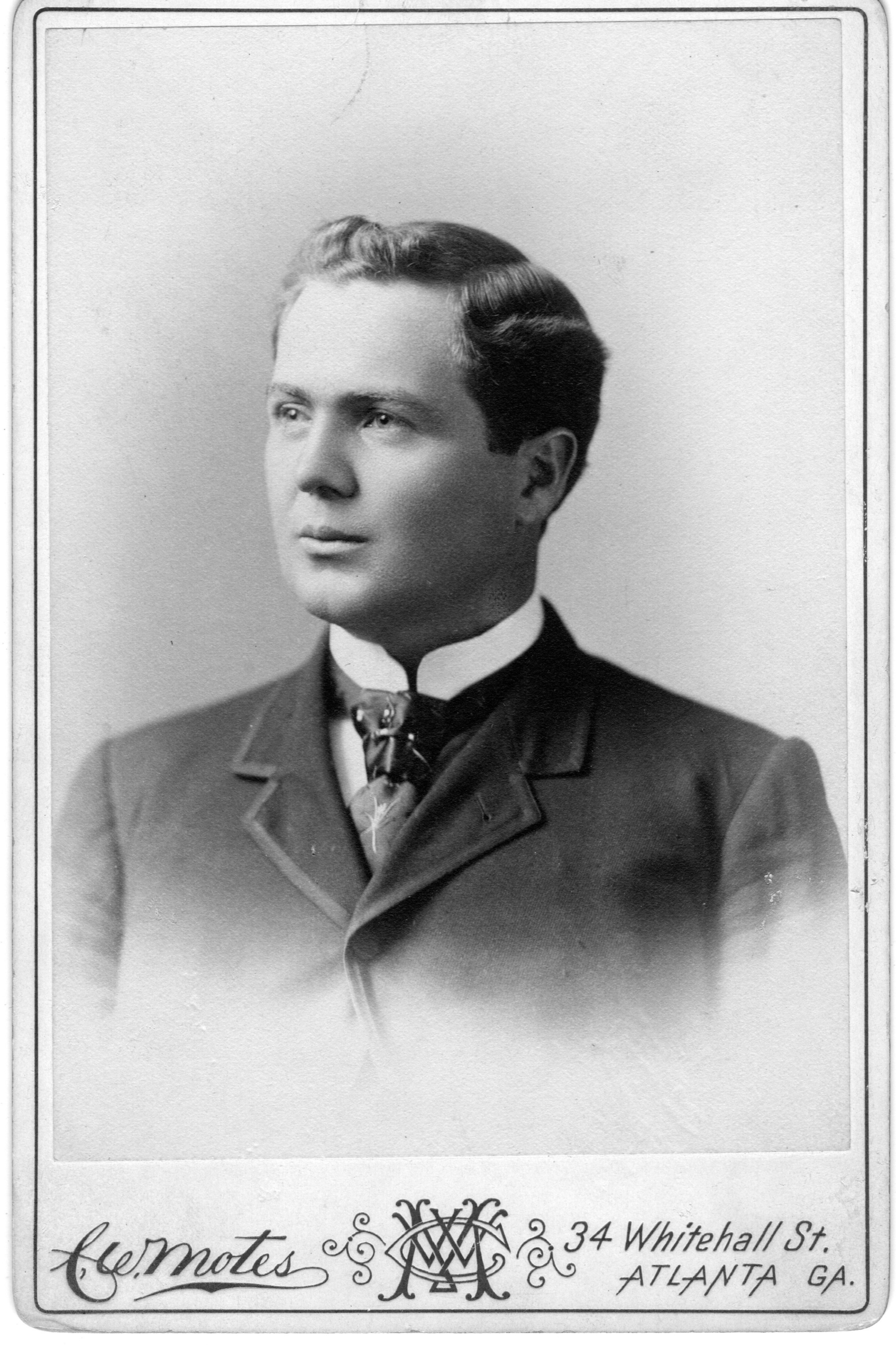
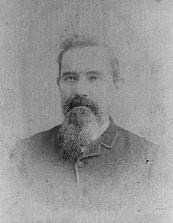
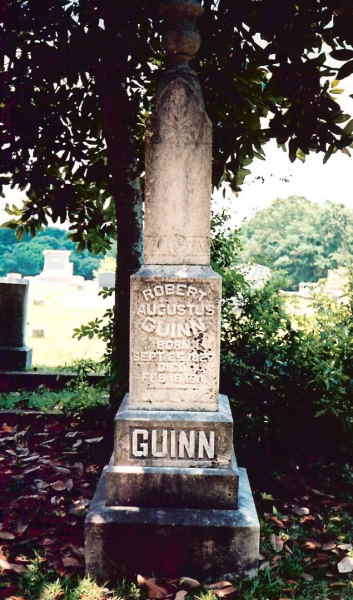
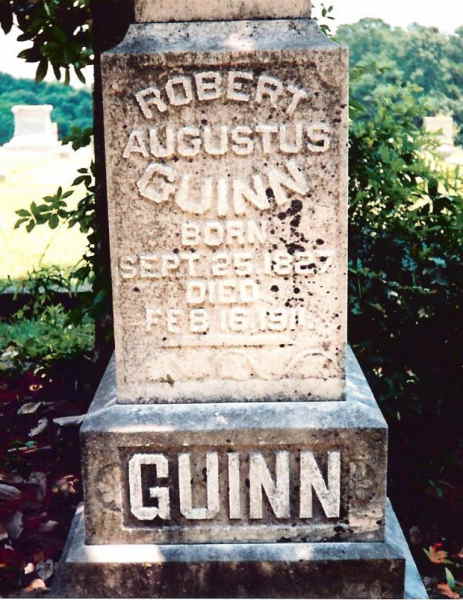
Editor’s Note: The great uncle of Mary Gwinn Bowe, Martha Gwinn Casey and Nancy Gwinn Riboud was Robert Augustus Gwinn (1827-1911). He was the brother of their grandfather Richard Gwinn, Sr. In this account Robert Gwinn (he spelled it “Guinn”) tells of leaving his life as a teacher in Conyers, in Newton County, Georgia at the outset of the Civil War to enlist in the Confederate Army. He reports on the “important” activities of Georgia’s Newton Rifles, his capture by General Sherman’s Army, his internment in a Union prison camp in Ohio, and finally his release at the end of the war.
History of Important Movements and Incidents of Newton Rifles
At Conyers, Newton County, Georgia, a volunteer company (Newton Rifles) was raised and organized in April and May 1861 with Dr. J. A. Stewart, Captain. The company was ordered to report at Camp McDonald, Georgia, where with other companies a regiment was organized with W. T. Wofford, Colonel – the Newton Rifles being Company B. The Regiment was mustered into service June 26, 1861 and ordered to Virginia and arrived at Richmond, Virginia, August 8, 1861. The regiment then became the 18th Georgia Regiment in the C. S. Service and on the 20th of November 1861 was attached to a Texas Brigade under Brig. Gen. Wigfall.
A. Guinn, a member of Co. B. 18th Ga. Regiment, did service in the army of Northern Virginia until discharged at Richmond, Virginia, August 7, 1862. Because of bad health I returned to Georgia. After being discharged from Army of Virginia I remained at home, Conyers, Georgia.
My health being improved, I entered the service again in Company G. 2nd Georgia Regiment State Troops at Atlanta, Georgia, August 1 and did service in the state six months and was discharged at Savannah, Georgia about 1st of February 1864.
I returned to Conyers, Georgia and resumed my profession as teacher and was captured by a Brigade of Federal Cavalry from Sherman’s Army on 22nd July 1864 and sent to prison at Camp Chase, Ohio and remained a prisoner until paroled at Richmond, Virginia on the 28th of March 1865.
NEWTON RIFLES
This volunteer company of infantry was raised at Conyers, Newton County, Georgia in the month of April and May 1861. This company unanimously elected Dr. J. A. Stewart Captain.
The writer (R. A. Guinn) was a private in said company, and was by no means an aspirant to military fame; he was lead only by a pure love of constitutional liberty which was disrespected by a fanatical majority North, and which they were attempting to crush out of existence by the force of arms.
We left Conyers on the 26th of June 1861 and was mustered into service of the state (Georgia) to be drilled two months commencing the 11th of June previous and to receive half pay from the state while drilling, then to be turned over to the Confederate Army for three years from the 11th of June 1861 if not sooner discharged. We were mustered into service by Col. Blakely at Camp McDonald, Georgia. We were thrown into the first regiment, 4th Brigade Georgia Volunteers. The Brigade was composed of two Regiments and one Battalion of infantry, one Battalion of artillery and a Battalion of Cavalry. The first Regiment was commanded by W. T. Wofford, the second Regiment was commanded by Colonel Boyed (Boyd, perhaps), the Rifle Battalion was commanded by Col. Jones, the Battalion of artillery was commanded by Col. Stovall, the Battalion of cavalry was commanded by Colonel DuBigrion; and the Brigade by Brigadier General Phillips.
The brigade was kept under strict military discipline and drill until the 1st of August when the Brigade was broken up and each Regiment and Battalion separately tendered to the Confederate States and ours the 1st Regiment left Camp McDonald, Georgia, for Virginia on the 3rd of August, passing on the State R. R. to Dalton, Georgia, from thence to Knoxville, Tennessee; from thence to Bristol on the line of Tennessee and Virginia, from thence to Lynchburg, Virginia on James River, here we lay over one night, and from Lynchburg to Petersburg, Virginia and from Petersburg to Richmond, Virginia, arriving at Richmond on the 8th of August, ours then became the 18th Georgia Regiment in the C. S. service.
We were stationed about three miles from the Capitol at a place known as Cedar Camp or Camp Scott. We drilled here two or three weeks, by this time the health of the Regiment had become very bad, and thinking perhaps a change would improve the health we moved about two miles nearer the city and stationed at what was known as Oregon Camp where we continued to drill two or three weeks. The health of the Regiment being considerably improved we were ordered to take charge of and guard a lot of prisoners then in Richmond. We then moved to a station known as Camp Winder near the prisons and guarded the prisoners until the 25th of October which was about six or seven weeks.
During the above mentioned time a detachment of 80 men from our Regiment was ordered to escort a lot of 250 prisoners to New Orleans. This guard or detachment was placed under command of Capt. Stewart. We left Richmond in charge of our lot of 250 prisoners on the 25th of September for New Orleans by way of Petersburg, Virginia and from Petersburg to Weldon, N. C., from Weldon to Wilmington, N. C., from Wilmington to Branchville, S. C., from Branchville to Augusta, Georgia, from Augusta to Atlanta, Georgia, from Atlanta to West Point on the line of Georgia and Alabama, from West Point to Montgomery, Alabama, and from Montgomery by the Alabama River to Mobile, Alabama, from Mobile by R. R. northerly thru Mississippi to Meridian, Mississippi and from Jackson to New Orleans, Louisiana, arriving at New Orleans on the 4th of October.
On our return, we left New Orleans on the 5th of October by the way of Jackson, Mississippi, Oxford, Mississippi and Chattanooga, Tennessee, and from Chattanooga to Atlanta, Georgia, the balance of the return the same as our route to New Orleans. We lay over at Conyers on the 9th of October and arrived at Richmond on the 12th of October. We continued to guard the prisoners at Richmond until the 25th of October.
We were then ordered to Goldsboro, N. C. We arrived at Goldsboro on the 26th of October. We left Goldsboro on the 7th of November and arrived at Richmond again on the 8th of November. We left Richmond on the 18th of November and arrived at Dumfries, Virginia, Prince William County, on the 20th of November and were stationed about three miles from Dumfries at a place known as Camp Fisher on the Potomac River between Powell’s Run Creek and Neabsco Creek. We joined Texas Brigade under Brig. Gen. Wigfall of Texas. Here we took winter quarters and remained until the 8th of March 1862.
We left winter quarters near Dumphries Saturday afternoon March 8 and marched the afternoon and part of the night and Sunday and Monday. Tuesday and Wednesday until 11 o’clock we lay over, when we again resumed the march and arrived at Fredericksburg Wednesday evening and pitched our tents in a beautiful pine orchard near Fredericksburg; this was called Camp Wigfall. In the meantime Col. Hood was appointed Brig. Gen. to fill the vacancy of Gen. Wigfall who had resigned his command in the army to take his seat in the Confederate Congress as senator. On the 4th of April we were ordered to Stafford Court House to drive the enemy from that place. This we did and returned to camp on the 5th of April.
We left Fredericksburg on the 10th of April and marched through rain, hail and snow to Wilford Depot near Bowlingreens, here we took the cars on the 11th and arrived at Ashland the same day. On the 14th of April we left Ashland at 3 o’clock P. M. and after a heavy march of 5 days we arrived at Yorktown on the 19th at 11 o’clock A. M., a distance of 90 or 100 miles. Here we had no tents and the weather very rainy and unpleasant. I was very unwell from the time we left Ashland till we arrived at Yorkstown. I continued to grow worse until the 30th of April when I was sent to the hospital at Richmond.
I registered at 3rd Ga. Hospital and remained in hospital till 3rd of May. I then got a transfer to a private house. I went to Mr. Mitchell’s and remained there till health improved. I left Mr. Mitchell’s on 17th May and returned to camps. During my absence the army had fallen back from Yorktown and was within three miles of Richmond. In the retreat our division had hard skirmishing and fighting with the enemy at Williamsburg on the 5th of May. On the 20th May we moved about five miles north of Richmond, remaining there one day and night then returned within one mile and a half of Richmond. We remained here one night which was one of the stormiest I ever saw, perhaps the heaviest fall of rain ever known in Virginia.
Next morning, 31st May, we moved to meet the enemy on Chickahominy River. We met the enemy that 31st day. We fought the enemy 31st May and 1st June known as battle of Seven Pines; the fight was hard and we gained little – our loss was heavy, though we held our position. I lay in the swamp on picket duty until 8th of June when I left Regiment and went to field hospital sick. The Regiment left the swamp on the 11th and Richmond on the 12th June to reinforce Gen. Jackson in Northern Virginia.
I left field hospital on 14th and went to 3rd Ga. Hospital Richmond. I left 3rd Ga. Hospital on 18th June and met my regiment at Frederickshall on the 20th. On 23rd the regiment left for Ashland. I being still unable to march I obtained leave of absence from Capt. Stewart signed by Brigade Sergeant to go to a private house until my health improved. I did so and returned to my Regiment on the 4th July 30 miles below Richmond.
We remained here on picket watching the enemy where they lay under shelter of their gun boats on James River 50 miles below Richmond and camped on the Virginia Central R. R. 3 miles from Richmond. On 17th July I was detailed as orderly for Lt. Lemon at Hospital Camp Texas Brigade. My health being very bad all the while I was discharged from the C. S. service on the 7th August and left Richmond on the 9th for Georgia, and arrived at Covington, Georgia on the 11th August 1862.
This brief History, written by Robert A. Guinn, himself, will show his service and whereabouts during the War Between the States.
I was a teacher by profession, had taught eleven years in succession before the war began, and was teaching at Conyers, Newton County, Georgia in 1861. In April and May 1861 I participated in organizing and equipping a volunteer company of infantry at Conyers, Newton County, Georgia with Dr. J. A. Stewart, Captain.
I resigned as principal of the high school at Conyers and left as a private in Capt. Stewart’s Co. and was mustered for service in Col. W. T. Wofford’s Regiment Georgia Volunteers at Camp McDonald, Georgia on the 26th of June 1861 and known in Wofford’s Regiment as Company B. The Regiment remained at Camp McDonald under strict military discipline, drilling and qualifying for regular service till tendered to the Confederate States on August 3rd 1861 and reported at Richmond, Virginia August 8th 1861.
Then Col. W. T. Wofford’s Reg’t became known as the 18th Georgia Regiment in the Army of Northern Virginia. I did service with Regiment until my health failed and I was honorably discharged from the service by Col. W. T. Wofford near Richmond, Virginia August 7th 1862.
I left Richmond for Georgia on the 9th of August and arrived at Conyers, Georgia on the 11th of August 1862. I remained at home four or five months. My health being much improved, the trustees and patrons of the High School at Conyers urged me to take charge of the High School. I accepted and taught through the spring term 1863.
During my vacation Capt. Richardson was organizing a company at Conyers for six months service in the State. I enlisted as a private in said company. About this time Col. John T. Henderson was organizing a Regiment for six months State Service – Capt. Richardson’s Company was mustered into service in Col. Henderson’s Regiment at Atlanta, Ga. on August 1st, 1863. Henderson’s Regt. was known as 2nd Ga. Regiment Six Months State Troops, and Richardson Company was known as Co. G. 2nd Ga. Regiment.
I served with the Regiment till the term of enlistment expired and the Regiment disbanded at Savannah, Georgia February 1st, 1864. I returned to Conyers, Georgia and took charge of High School and taught through spring term 1864. During my vacation I was captured in my home county (Newton) on the 22nd day of July 1864 by a Regiment of Federal Cavalry from Sherman’s Army and sent to prison at Camp Chase Ohio and remained a citizen prisoner till sent south and paroled near Richmond, Virginia on the 28th day of March 1865.
- A. Guinn’s Capture and Imprisonment
- A. Guinn, citizen of Newton County, Georgia, was captured near Covington, Georgia by Wilder’s Brigade Federal Cavalry on 22nd July 1864 and imprisoned in Sardis Church on the night of the 22nd of July. On the 23rd we left said church, passing Logansville, crossing Yellow River at Colt’s Mill and camped for the night in an old field near Stone Mountain 8 or 10 miles from Decatur. On the 24th we arrived at Decatur. We lay near Decatur under guard till the 26th – we moved near to Atlanta – on the 27th we moved west of Atlanta – on the 28th we moved to Chattahoochee River – on the 29th we arrived at Marietta.
We were imprisoned in the Court House of Marietta till the 1st of August. We left Marietta on the 1st of August and arrived at Chattanooga on the 2nd and confined in the military prison. We left Chattanooga on the 13th and arrived at Nashville, Tennessee on 14th August. We left Nashville, Tennessee on 15th and arrived at Louisville, Kentucky on the same day (15th). We left Louisville, Kentucky on the 22nd and arrived at Camp Chase, Ohio on the 23rd August 1864 and quartered in Barracks 4, Prison 2. We were sent out of Prison 2 to Prison 3, Barracks 9 on the 7th March 1865.
We left Camp Chase, Ohio for the south on exchange via Fortress Monroe Virginia at 4 o’clock A. M. Saturday the 18th of March 1865 and arrived at Bell Air on Ohio River at 11 o’clock P. M. and lay at that place on account of high water till 5 o’clock P. M. the 20th and arrived at Fair Mount at 11 o’clock P. M. and lay here till 12 o’clock A. M. on the 21st and arrived at Baltimore, Md. on the 22nd at 10 o’clock A. M. We lay off Point Lookout on the night of 24th. We lay off Jamestown on the night of 25th. We arrived at Achin’s Landing 12 o’clock A. M. on the 26th. At 7 o’clock A. M. the 27th we were marched across the lines and turned over to Confederate authorities and arrived at Richmond 12 o’clock A. M.
On March 28th at 7 o’clock P. M. we left Richmond, Va. for Georgia and arrived at Covington, Georgia on the 5th April at 7 o’clock P. M. and arrived at Conyers, Georgia 12 o’clock A. M. the 6th of April 1865.
This account was reprinted from a manuscript owned by Mrs. G. M. Eakes, daughter of R. A. Guinn and member of the Agnes Lee Chapter, United Daughters of the Confederacy, and was published in 1946…



